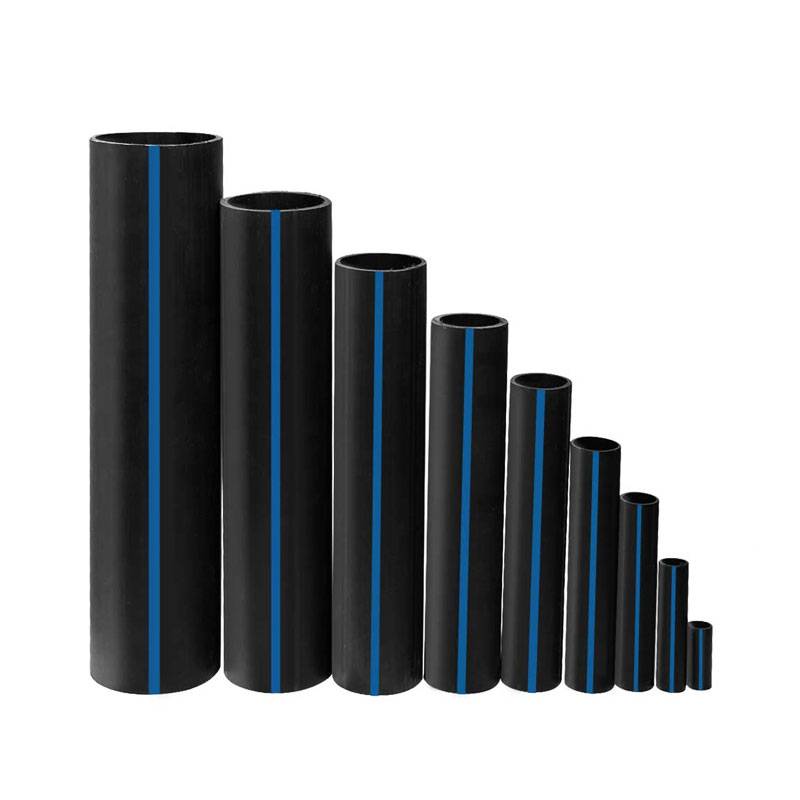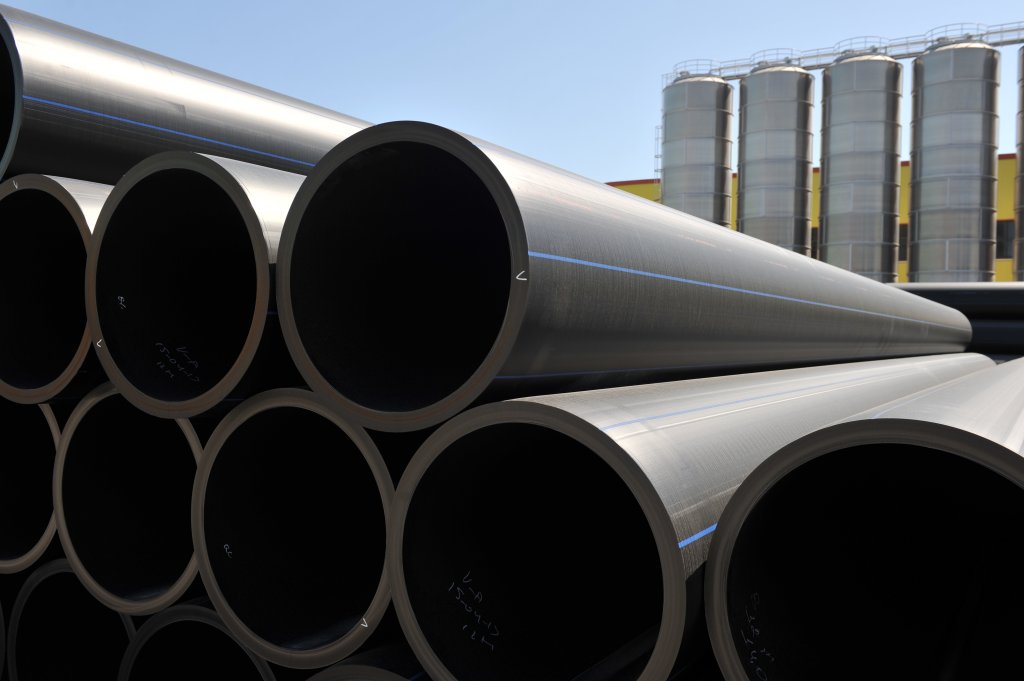Comprehending the Secret Perks of HDPE Pipe for Water and Wastewater Monitoring
Using HDPE pipeline in water and wastewater administration offers numerous advantages that merit consideration. Its phenomenal toughness and lengthy life expectancy make it a preferred option for many projects. In addition, the product's resistance to deterioration and chemical damage boosts its reliability in different atmospheres. The benefits prolong beyond just durability and resistance. hdpe pipe fittings Midland TX. Discovering its cost-effectiveness and ecological influence reveals a lot more engaging reasons for its widespread fostering in modern-day infrastructure
Outstanding Toughness and Long Life

HDPE pipeline stands out for its outstanding longevity and durability, making it a recommended choice in water management systems. Created from high-density polyethylene, these pipes can stand up to significant pressure and stress and anxiety, guaranteeing reputable efficiency with time. Their durable nature permits them to sustain severe ecological conditions, consisting of temperature level changes and dirt movements, which can cause various other materials to fall short.
The lifespan of HDPE pipelines commonly surpasses half a century, offering an affordable service for towns and markets alike. In addition, the product's lightweight residential properties streamline setup, decreasing labor expenses and durations. This longevity minimizes the requirement for regular repairs or replacements, further enhancing its economic charm.
In water administration applications, the dependability of HDPE pipelines implies less disruptions and enhanced solution continuity, making them indispensable to lasting facilities advancement. The mix of longevity and durability solidifies HDPE's duty as a foundation in efficient water monitoring services.

Resistance to Rust and Chemical Damages
While many products catch corrosion and chemical damage with time, HDPE pipes exhibit exceptional resistance, making them perfect for different water administration applications. This strength originates from the molecular framework of high-density polyethylene, which is inherently non-reactive and does not wear away like steels or deteriorate from exposure to harsh chemicals. Because of this, HDPE is very efficient in environments with aggressive compounds, such as wastewater systems that may consist of acids, bases, and organic solvents.
In addition, HDPE pipes can hold up against ecological variables such as dirt acidity and saline conditions, better improving their viability for diverse applications (American Plastics HDPE Pipe Manufacturing). Their ability to maintain architectural integrity over time lowers the danger of leakages and failings, which is critical in guaranteeing the security and reliability of water distribution and wastewater management systems. As a result, the resistance to deterioration and chemical damages markedly adds to the total effectiveness and long life of HDPE piping remedies
Cost-Effectiveness and Financial Advantages
When taking into consideration the monetary implications of water administration systems, the cost-effectiveness of HDPE pipelines comes to be apparent. These pipes supply reduced installment and maintenance prices contrasted to conventional materials pvc fittings like steel or concrete. Their lightweight nature simplifies transportation and setup, causing minimized labor expenses. In addition, HDPE pipes show a lengthy life-span, commonly going beyond 50 years, which converts to fewer substitutes and lasting cost savings.
The resistance of HDPE to corrosion and chemical damage minimizes the demand for expensive fixings and substitutes. The pipes additionally sustain reliable water flow, decreasing power prices related to pumping systems. By alleviating leakages and water loss, HDPE pipelines add to considerable economic benefits for towns and markets alike. On the whole, the preliminary investment in HDPE piping can generate significant financial returns over the life expectancy of the water management system, making it a prudent selection for lasting infrastructure advancement.
Ecological Sustainability and Minimized Effect

Convenience and Adaptability in Installation
As a result of their one-of-a-kind homes, HDPE pipes provide remarkable flexibility and flexibility in installation, making them appropriate for a wide variety of applications. Their light-weight nature permits much easier handling and transportation, decreasing labor prices and setup time. HDPE pipelines can be curved and formed to fit various surfaces and job demands, which is specifically advantageous in challenging environments.
Additionally, their resistance to rust and chemical damages permits installation in varied settings without the demand for specialized safety finishings. The capacity to fuse joints develops a constant, leak-free system, enhancing the general stability and dependability of the installment. HDPE's flexibility additionally accommodates ground motion, lowering the risk of damages in locations vulnerable to changing soil. Overall, these characteristics make HDPE pipes not only flexible yet also a preferred option for water and wastewater administration systems.
Often Asked Questions
How Does HDPE Pipe Contrast to PVC in Water Administration Applications?
HDPE pipe offers premium adaptability, resistance to deterioration, and resilience contrasted to PVC. Its lighter weight assists in easier installation, while its lengthy life expectancy reduces substitute prices, making HDPE a favored option in water administration applications.
What Is the Life Expectancy of HDPE Water Lines Under Common Problems?
Under typical problems, HDPE pipes can have a life expectancy ranging from 50 to 100 years. Their resilience and resistance to corrosion contribute to their long-lasting performance in different applications, making them a trustworthy choice for framework.
Are HDPE Water Lines Recyclable After Their Service Life?
Yes, HDPE pipelines are recyclable after their solution life. Pipe Manufacturing Midland TX. They can be processed and repurposed right into brand-new items, greatly minimizing ecological impact and advertising sustainability within the market, making them an environment-friendly selection for piping options
What Is the Installment Process for HDPE Pipeline?
The installation process for HDPE pipelines involves website prep work, trenching, pipe combination or mechanical joining, blog here backfilling, and stress screening. Appropriate strategies guarantee a resilient and efficient system for transferring water and wastewater efficiently.
Can HDPE Pipeline Be Used for Both Potable and Non-Potable Water Solutions?
Yes, HDPE pipelines can be utilized for both potable and non-potable water systems. Their adaptability, durability, and resistance to deterioration make them ideal for different applications, ensuring secure and effective transport of water in various contexts.